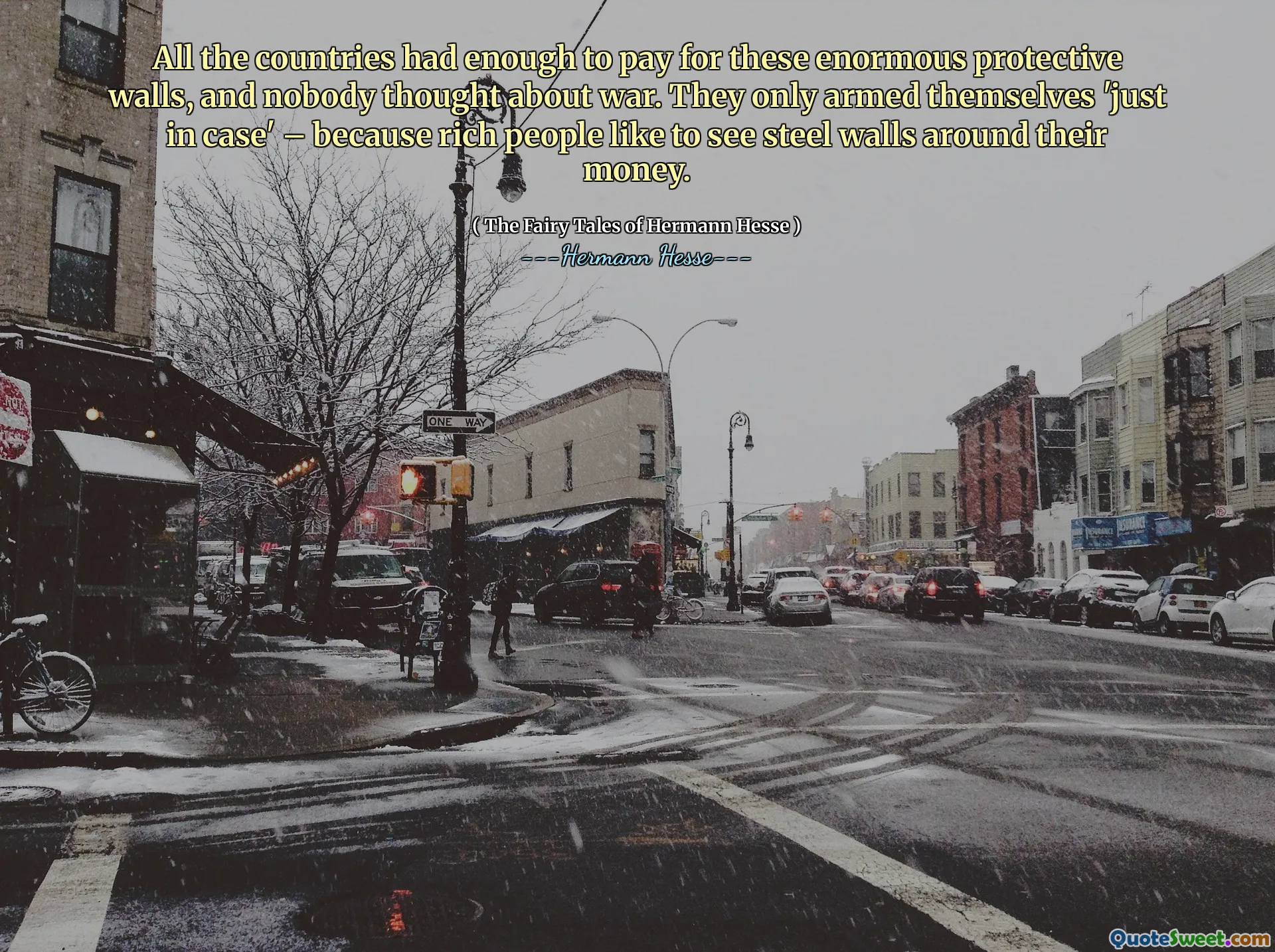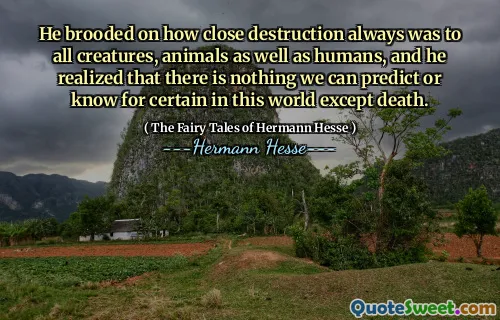
All the countries had enough to pay for these enormous protective walls, and nobody thought about war. They only armed themselves 'just in case' – because rich people like to see steel walls around their money.
This quote presents a powerful commentary on the paradox of security and wealth. It highlights how nations invest heavily in protective measures, not necessarily because they are actively preparing for immediate conflict, but rather out of a sense of caution or deterrence. The phrase "just in case" underscores the ever-present, underlying anxiety that permeates the mindset of those in power. It's a subtle nod to the tension between peace and fear — that even in times of relative calm, the looming possibility of conflict shapes national and individual behavior.
Moreover, the quote draws attention to the interests of the wealthy class, who see security as a safeguard for their riches more than for ideological or patriotic reasons. The "steel walls around their money" is a metaphor for economic barriers or protections that ensure wealth preservation above all else. This raises questions about the motivations behind militarization and whether safety measures serve the collective good or predominantly protect privileged interests.
From a broader philosophical perspective, the quote invites readers to reflect on the nature of security and power. It critiques the societal structures that prioritize material wealth and the inherent contradictions in preparing for war to avoid war. In the context of Hermann Hesse's literary work, which often explores introspection and the quest for meaning, this passage resonates as an observation of human nature, societal priorities, and the subtle conflicts that simmer beneath peaceful facades. The message is as much about the external world as it is about internal states of fear and the human desire for control.







